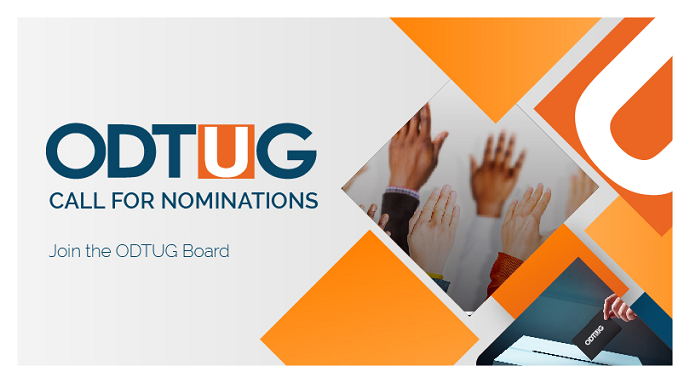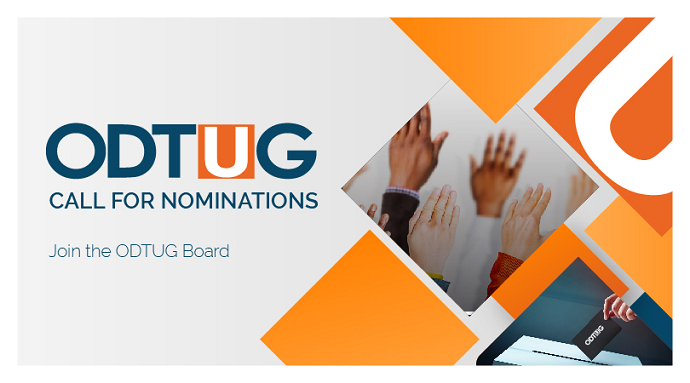Are you a developer or architect who wants in-depth technical training at Oracle OpenWorld?
ODTUG is proud to offer five Symposiums on Sunday, September 30, 2012 at Oracle OpenWorld in San Francisco, CA. ODTUG Symposium topic areas are: Database Development, Business Intelligence, Fusion Middleware, Hyperion/EPM, and Application Express.
ODTUG Sunday Symposium Database Development Schedule
Database Development
Sunday, September 30
Moscone West – 2009
8:00 a.m. – 4:30 p.m.
Requirements vs. Features and Describing Your Must-Have-Now Capabilities
Tim Gorman, Evergreen Database Technologies
Dominic Delmolino, Agilex
Time: 8:00 – 9:00 a.m.
Some system development lifecycle processes insist on completing a thorough requirements analysis phase before starting in on any design or development, often leading to tense yes or no negotiations over every requirement. This session will discuss approaches that treat requirements and even maintenance activities as items that can be prioritized in a relative fashion to fit into iterative, dependable short release schedules. This approach regards the feature list as a live set of items that is constantly assessed and re-prioritized in response to current business and mission needs. The session will also examine the benefit of constant, short release cycles on planning, forecasting, and more rapid achievement of business value.
Objective:
- Learn about how to build a case for well-defined, short, uniform length release cycles.
- Learn how this approach contrasts with traditional lifecycle methods.
- Learn how this approach contrasts with "Agile Done Wrong" projects.
Flexible Design and Modeling: Planning for Constant Change
Gwen Shapira, Pythian
Robyn Sands, Oracle Corporation
Time: 9:15 – 10:00 a.m.
It's impossible to have the perfect design and attempts to do so make everyone frustrated. While some have advocated abandoning design activities altogether, we've seen how a lack of planning leads to disaster. This session will go over techniques that enable you to do "just enough design" to prevent problems while rapidly enabling the start of development. The session will also cover what makes a design flexible without being overly generic.
Objective:
- Learn how to get the most out of a design process without sacrificing integrity and robustness.
- Learn techniques to do “just enough design” to prevent problems while enabling the start of dev.
- Learn techniques to create a flexible design without being overly generic.
No Surprises Development and Environment Management
Stewart Bryson, Rittman Mead
Kellyn Pot’Vin, Enkitec
Time: 10:30 – 11:30 a.m.
Other programming disciplines have taken advantage of collaborative development, Agile methods, and rapid feedback to achieve quality code faster. The ability to constantly build and deploy code into identical environments assists in this capability. This session will talk about techniques that enable higher levels of visibility and traceability when developing database code and schema objects. The session will also cover the value of constant environmental comparisons between developer copies, central development databases as well as integration environments that can reduce potential deployment problems.
Objective:
- Learn about Oracle's built-in capabilities for tracking database changes.
- Learn how these tools can be used to facilitate development, deployment, and quality peer reviews.
- Learn about how to leverage compare tools to reduce potential code movement and deployment issues.
Getting it Right Every Time: Rehearsing Deployments
Dominic Delmolino, Agilex
Ted Coyle, Oracle Corporation
Time: 11:45 a.m. – 12:15 p.m.
Learning about deployment issues during production rollouts can cause all sorts of problems. No one likes to have to explain why these issues weren't prevented ahead of time. This session will build on the transparency and environmental comparison techniques from the prior session to discuss how to perform production-like deployments several times before the actual event. The session will talk about preparing environments, practicing deployments, and capturing issues that could cause problems later.
Objective:
- Learn about preparing environments for practice production deployments.
- Learn how to capture issues from these practice events.
- Learn how to address these issues in your development cycle.
Value-Based Testing
Gwen Shapira, Pythian
Dan Norris, Oracle Corporation
Time: 12:30 – 1:15 p.m.
Given that you may have already done Test-Driven Development, QA testing may seem superfluous. This session will discuss ways to get even more value out of a QA process from the Development and Operations perspective. The session will discuss how Operations can use QA to get their first look at upcoming releases and how their feedback to Development can be captured and leveraged for success. The session will also cover techniques for performance testing, baselining, and getting the most out of a QA cycle.
Objective:
- Learn how to leverage a QA cycle for the benefit of Operations and Development.
- Learn techniques for establishing QA as a valuable testing environment.
- Learn techniques for establishing QA as a repeatable performance testing environment.
Anticlimactic Production Releases
Cary Millsap, Method R Corporation
Dan Norris, Oracle Corporation
Time: 1:30 – 2:00 p.m.
Going to production shouldn't be a big deal. This session will build on testing and rehearsal successes to talk about what can be done to further improve the success of a production deployment. The session will talk about aggressive reduction and elimination of outage windows with pre-deployment and post-deployment techniques. The session will also discuss feature switches, A/B testing, and dark launches that enable confident production operations. Finally, rollback possibilities that require minimal effort and impact will be discussed.
Objective:
- Learn about techniques for minimizing and eliminating outages during production deployments.
- Learn about ways to "turn-off" new features or launch them “dormant” to minimize impacts.
- Learn about how to "undo" a production release.
Keeping the Train Going: Track Maintenance and New Passengers
Dominic Delmolino, Agilex
Time: 2:30 – 4:30 p.m.
While some processes conclude when initial development has been completed and deployed to production, this session discuss an approach that has the future of the system in mind. Since all of the value of the system is captured during its production usage, the session will discuss how to leverage that information to increase the value of the system even further by increasing the value of Operations to Development feedback. The session will also talk about planning for the next release cycle, and how to incorporate production feedback into the re-prioritized feature list so that everyone is excited for the rapidly upcoming N+1 release.
Objective:
- Learn how to increase collaboration between Ops and Dev in order to more rapidly address issues.
- Learn about how this approach incorporates modern DevOps concepts.
Learn about how to keep everyone excited and focused on the next release.



